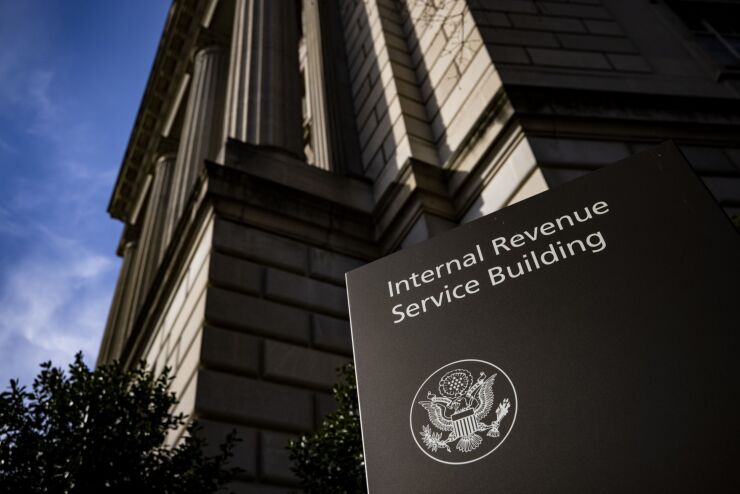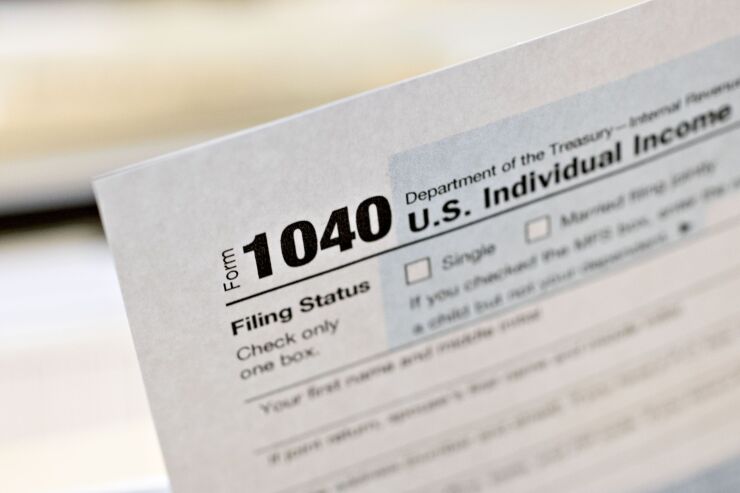The tax season just got more confusing.
A flurry of unexpected announcements from the IRS regarding the latest pandemic relief package has sent advisors and accountants scrambling to suss out tax savings for their clients.
Even with the filing deadline extended to May 17, it hasn’t been easy.
“It’s a disaster. It’s a mess. It’s a nightmare,” says Neil Carousso, a CFP and CPA In Bayside, New York.
The latest complication to an already-chaotic season comes thanks to a new tax break for a chunk of unemployment benefits received last year. One day after extending the filing deadline, the IRS said on March 18 that it would “automatically” issue refunds of taxes that individuals who already filed had paid on $10,200 in benefits received last year. The surprise announcement came one week after after President Biden signed the $1.9 trillion pandemic relief bill, exempting the chunk of benefits from federal tax.

At a Congressional hearing on the filing season on March 18, IRS Commissioner Charles Rettig promised that the IRS would "automatically" compute the refund for taxpayers who have already sent in their returns. Advisors and accountants are sceptical.
“How the IRS is going to do this with returns already filed -- it’s going to be a challenge,” says Scott Rutherford, a wealth advisor who is also a CFP and CPA at Gratus Capital, an RIA in Atlanta.
Rettig has commanded taxpayers not to file amended returns. More than
Some advisors plan to ignore his directive.
“It’s not incumbent on the IRS to make a taxpayer whole,” says Stephen Bonick, a CPF and CPA in Monterey, California. “You can let the IRS do the work for you, or you can do it yourself and file an amended [return] as a prophylactic.”
The latest IRS guidance, made as the tax season is in full swing, has poured fuel on a filing season that some advisors said was already a "
The nation’s tax collector opened the filing season late, on Feb. 12, to give it time to send out the two (nontaxable) stimulus checks ($600 and $1,200) to taxpayers in 2020. It already has a logjam of unprocessed returns from last year, when it sent its 80,000 employees home and shut offices due to the pandemic. A total
Advisors and accountants complain that the rules governing the forgiveness of Paycheck Protection Program loans, used by many small-business owners, are still fuzzy. The IRS said in January that for federal purposes, holders of forgiven loans can
There have been other surprises.
On March 15, the agency unexpectedly

Amid the changes, Rutherford says that “advisors have an opportunity to talk to clients and say, ‘let’s stay on top of it and make sure your refund is what you should have’.” This tax season in particular, “we need to be diligent and vigilant about the IRS doing what it needs to do.”
Not all
In any case, the May 17 federal deadline is only for individuals, not for returns for estates, trusts, corporations and other businesses. Taxpayers required to make quarterly estimated payments, on self-employment income, dividends, rental income and the like, still have to send them in by the traditional April 15 deadline. The American Institute of Certified Public Accountants, the leading trade and lobby group for CPAs, is urging a
Last June, the IRS
The problem, Carousso says, is that the IRS is still coordinating with tax software providers on the forms needed to handle that change.
Sharif Muhammad, a CFP and CPA who is the founder and CEO of Unlimited Capital Advisors, a planning and advisory firm in Somerset, New Jersey, says that in theory, “this is the opportune time where advisors and CPAs should be holding hands and having a kumbaya moment.”
Instead, many are howling. The flurry of IRS guidelines is "kind of patchwork,” he says, “and creates gridlock while tax season is in full swing.”





